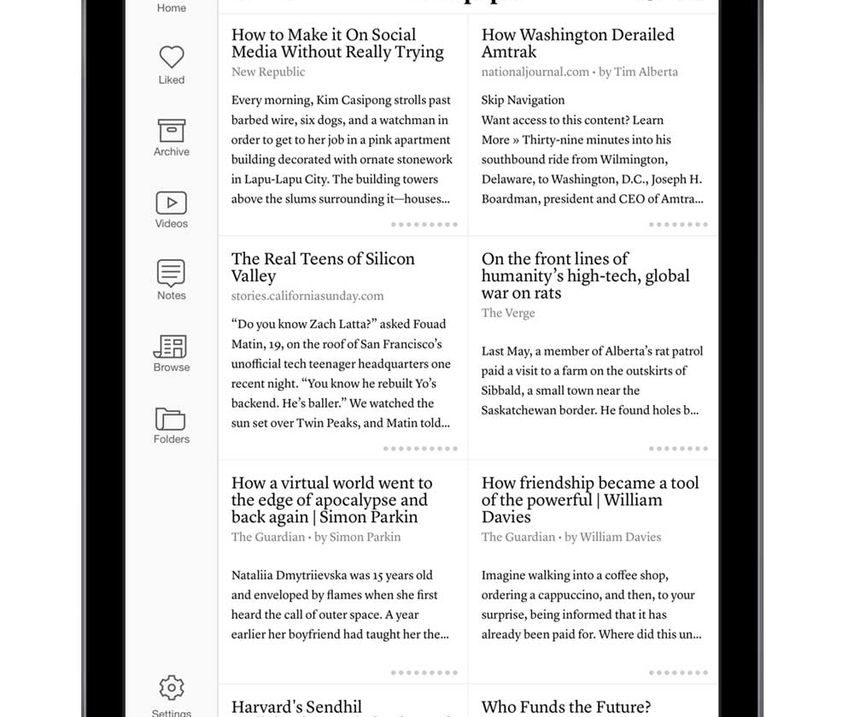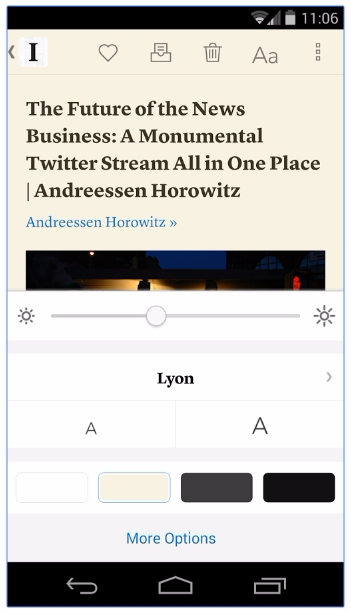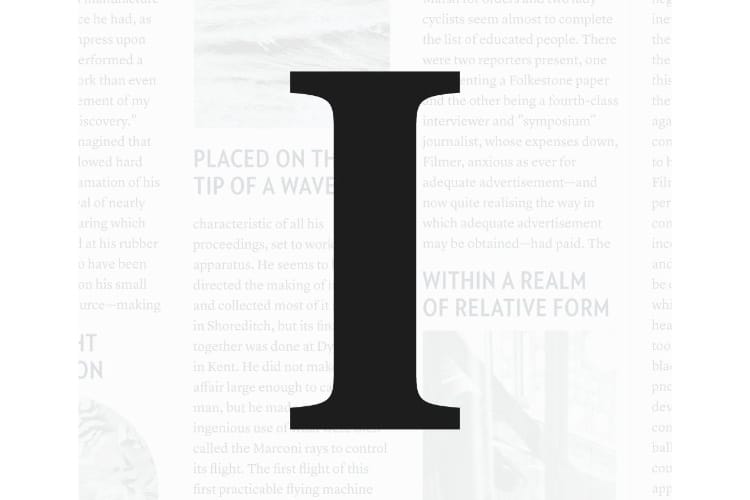

If advertisers developed their own special targeting for Instapaper users on or off the Instapaper platform based on the data you shared with them, then as a matter of fact yes, you did help in developing specialized targeting for advertisements. Monetizing user data by providing derivative or curated analytics pertaining to that data is also substantial monetization of that user data. Literally "selling" user data is not the only way in which user data is monetized. Unless you have a fantastic answer for these two questions, I don't see how what you've just said is reconcilable with your privacy policy or terms of service. At best I believe you're stating things which are superficially true but skating around the spirit of people's intent when they ask about privacy policies and how user data is being used. I'm going to be blunt with you, Brian: I don't believe what you're saying to me right now.

We may tell an advertiser or publisher that X number of people bookmarked Z stories from a particular site or topic. We may tell an advertiser or publisher that X number of people visited a certain area on our website

You've just said, "We have never monetized using user data, or developed any type of special targeted advertising for Instapaper." How is this statement congruent with paragraph 3 of "The Way We Use Information" in the Instapaper Privacy Policy ? Quoting:
#Instapaper europe license
If Instapaper "hard deletes" user data when a user deletes their account, what precisely does the License Grant language mean when it states Instapaper has a "worldwide, non-exclusive, perpetual, royalty-free, fully paid, sublicensable and transferable license" to the User Content "including after your termination of your Account or the Services."? This is from "Instapaper Application License", section (a) of the Instapaper Terms of Service. Thus we have Instapaper being cut lose, yet again.ġ. When GDPR came along, this probably tipped the scales to make Instapaper a net liability for the company (and not one in line with its financial or brand goals). This monetization model was probably never terribly significant for Pinterest, except insofar as it was useful for internal discussions and inspirations for ways Pinterest could improve upon their own user data analysis.
#Instapaper europe full
Note that in their Privacy Policy Instapaper also states they use cookies "and other tracking technology" (and they specifically do not enumerate the full number of reasons which they do so, aside from normal login and session maintenance) in their Privacy Policy.įurther, I'm going to go ahead and assume this can be explained through basic cynicism. Most likely this is provided for market research or advertising optimization. My hypothesis is that Instapaper, either from the outset or somewhere prior to being acquired by Pinterest, developed a monetization model dependent upon selling user data (or derivative analysis/features of user data) to third parties. What do you suppose that is used for? Maybe Brian can enlighten us. The "License Grant" section of the Terms of Service is also good reading, because it indicates that they can use user data in perpetuity, even after closing your Instapaper account (presumably until you explicitly request your information being deleted).

In such transactions, user information may be among the transferred assets. (P6) In the future, we may sell, buy, merge, or partner with other companies or businesses. (P3) We use non-identifying and aggregate information to better design Instapaper, to suggest popular content to users, and to share with advertisers and publishers. We do not share this information with outside parties except to the extent necessary to accomplish Instapaper's functionality. (P1) We use the information you provide to operate Instapaper's features. In particular, direct your attention to the following, under "The Way We Use Information": Now take a look at Instapaper's privacy policy. So I find it very unlikely you're going to get an answer here, because this account is clearly designed to do low-touch public reassurance without much commitment or transparency. When followup questions are posed, particularly more difficult ones, he never responds. He's not active on HN, but he jumps in for quick damage control and "clarification" when people have vaguely privacy-related or operational questions about Instapaper.


 0 kommentar(er)
0 kommentar(er)
